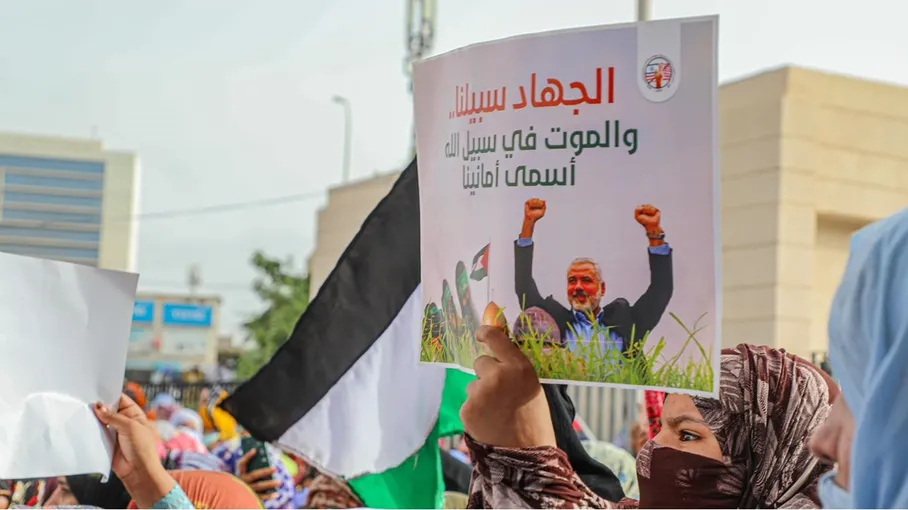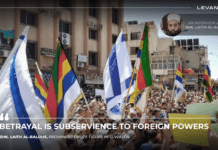
The assassination of Ismail Haniyeh, the head of the political bureau of Hamas, in an Israeli raid on his residence in Tehran has sparked a wave of international reactions. While many countries condemned the killing, notable silence and vague responses from some prominent Arab nations have drawn attention.
Yesterday evening, Yemen’s internationally recognized government strongly condemned Haniyeh’s assassination. The Yemeni Foreign Ministry called on the international community to take urgent steps to prevent Israeli violations against Palestinians and to implement a ceasefire in Gaza.
Iranian state television reported Haniyeh’s death, announcing an investigation into the assassination. The Iranian Revolutionary Guard Corps (IRGC) vowed a “harsh response,” emphasizing that the “Zionist regime” would face “consequences” from the powerful resistance front, especially Iran. Iran declared a three-day mourning period, condemning the assassination as a violation of international law.
In Mauritania, thousands demonstrated in Nouakchott, condemning Haniyeh’s assassination and supporting the Palestinian resistance. Protests also occurred in front of the American embassy, with calls to expel the US ambassador. Mauritanian political parties and representatives issued statements denouncing the killing and urging support for the Palestinian cause.
In Morocco, thousands took to the streets of Casablanca and other cities to protest the assassination. Demonstrators called on the Arab and Islamic world to intervene, with widespread solidarity campaigns supporting Gaza. Many in Jordan, with one of the largest Palestinian populations outside of Palestine, demanded a day of outrage to take to the streets in the kingdom and show their anger at Haniyeh’s assassination by holding a rally in front of the Israeli embassy.
Syrian revolutionary groups, both political and military, mourned Haniyeh’s death. The Syrian Islamic Council expressed condolences, calling for divine retribution against those responsible. The Syrian Salvation Government in Idlib and the Ahrar al-Sham movement issued statements honoring Haniyeh’s sacrifices and condemning his assassination.
Despite public outcry at the murder, and support and condolences for the Palestinian resistance by their civilian populations, the leadership and governments of several prominent Arab countries, including Saudi Arabia and Morocco, have remained silent on the assassination.
Egypt, the UAE, and Bahrain issued statements expressing “concern” over “regional tensions” but did not directly condemn Haniyeh’s killing. Egypt warned of the dangers of escalating confrontations and violating state sovereignty but did not mention Haniyeh’s name or the assassination explicitly. The UAE called for “restraint” and “respect for state sovereignty,” while Bahrain emphasized the need to “avoid further violence.”
Countries such as Iraq, Algeria, Jordan, Oman, Yemen, Kuwait, and Tunisia, along with Turkey, Malaysia, Pakistan, Afghanistan, China, Russia, and Syrian Revolutionary institutions all condemned the assassination. Palestinian President Mahmoud Abbas declared a day of mourning, lowering flags in honor of Haniyeh.
Hamas announced a ceremony will be held in Tehran today, August 1, followed by Haniyeh’s funeral service in Doha on Friday, August 2. Iranian Leader Ali Khamenei led prayers for Haniyeh, with a large turnout of officials and the public. Haniyeh’s body will be transported to Qatar for burial and a proper funeral in Lusail.








